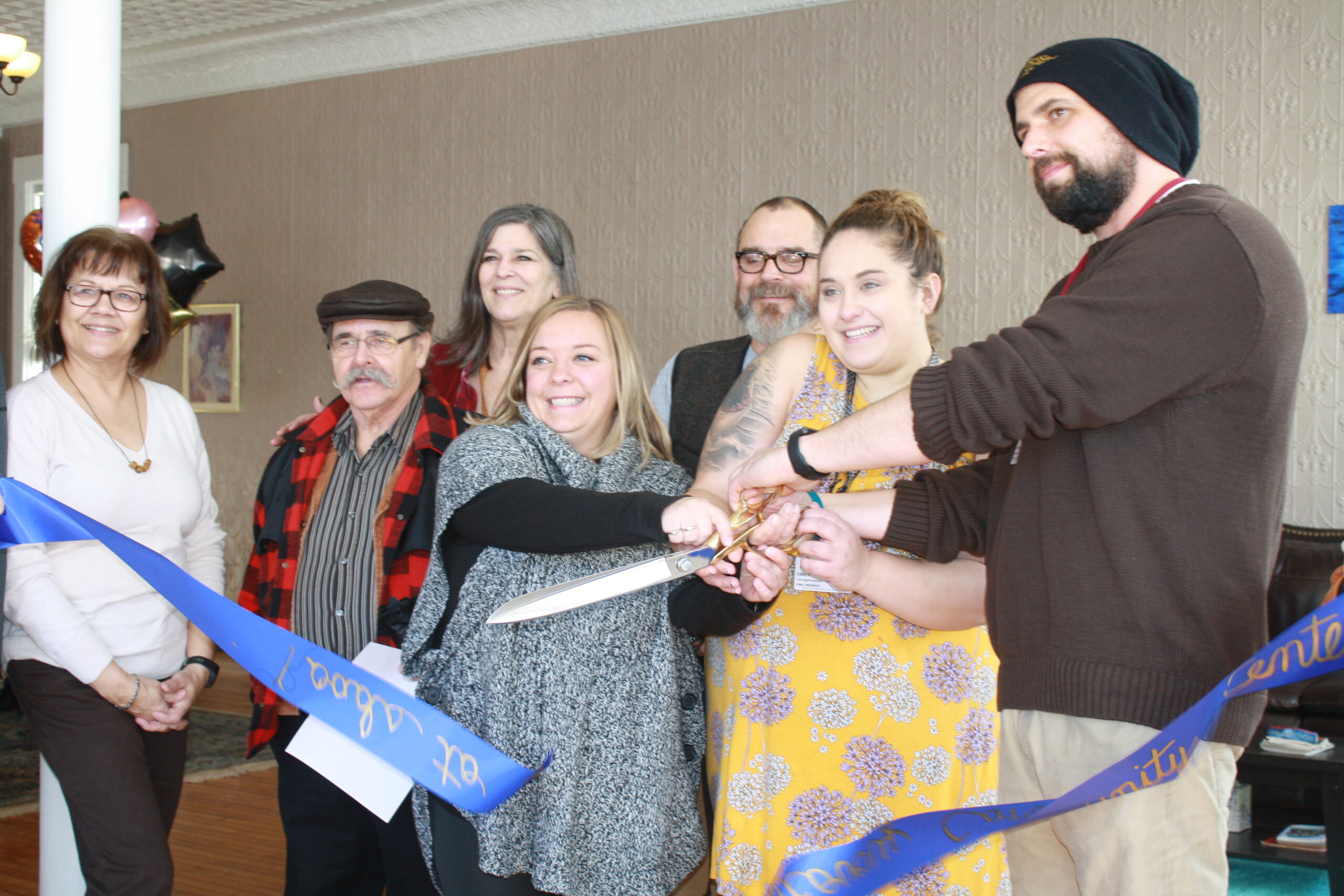
CARIBOU, Maine — Members of the public gathered together on Saturday, Nov. 24 in Caribou to mark the grand opening of the newly established Roads to Recovery Community Center, a place that will provide support and guidance to individuals seeking recovery from substance abuse.
Roads to Recovery is the first center of its kind in Aroostook County and is a collaboration between the Aroostook Mental Health Center and Recovery Aroostook. The center, located on 1 Water Street, will provide peer counseling and group therapy sessions, psycho educational and skill building groups, 12-step recovery groups and access to workforce development, treatment and wellness resources. The space includes living room and dining areas, a children’s play area, staff offices and meeting rooms.
“We wanted to create a pro-recovery community where people can meet others who know what they’re going through and not feel like they’re being judged,” Stephen Tibbert, Road to Recovery Community Center manager, said.
According to recent statistics from the Centers for Disease Control and Prevention, Maine is now the sixth worst state when it comes to increases in opioid overdose deaths. Between January 2017 and January 2018, the number of overdose deaths in Maine increased 10.9 percent from 367 to 407, compared to the national average of 6.6 percent. Last year alone saw 418 individuals die from opioid overdoses throughout the state.
Recovery Aroostook members hope to decrease those tragedies by using Roads to Recovery to reach out to folks in Aroostook County struggling with addiction. Ally Bell, chair of Recovery Aroostook, said that opening the center has been a major goal for the group since they formed in 2017.
“There’s a great need in our communities for recovery centers and we hope that this place becomes the first of many that will open in Aroostook County,” Bell said.
During Saturday’s open house, community members participated in the Pieces of Recovery: The Puzzle Project, organized by University of New England masters in social work student, activist and artist Glenn Simpson. Throughout the state folks in the recovery community put together their own puzzle pieces that will become part of a 418-piece mural that Simpson will present later this year at UNE. The 418 puzzle pieces represent all the people who died of opioid overdoses in Maine last year.
Stacie Holton, of Caribou, took part in the puzzle project and open house and said that, as someone in recovery, she hopes to inspire others who are going through similar traumas by volunteering at the new center. She has been sober for nearly three years now and is grateful that people now have a chance to gain greater connections with others in the recovery community.
“I hit many rock bottoms over 23 years before I finally checked myself into a 28-day rehab program in Limestone,” Holton said. “It’s great that we now have a place for people to come together and feel welcome with each other.”







